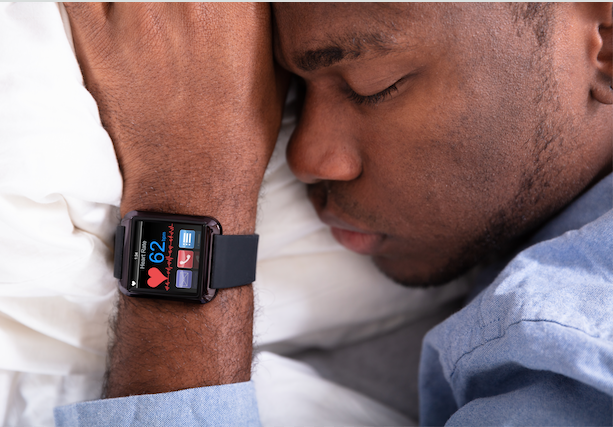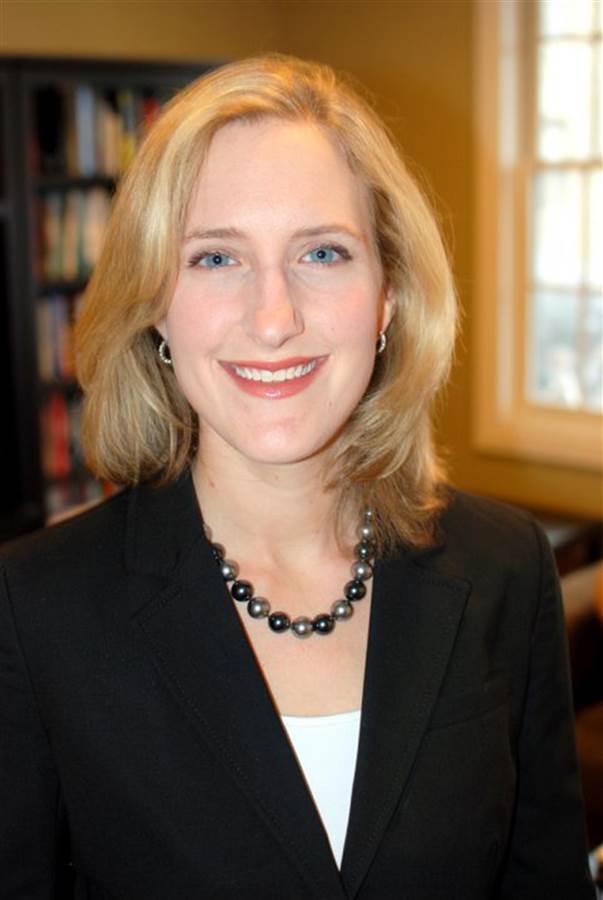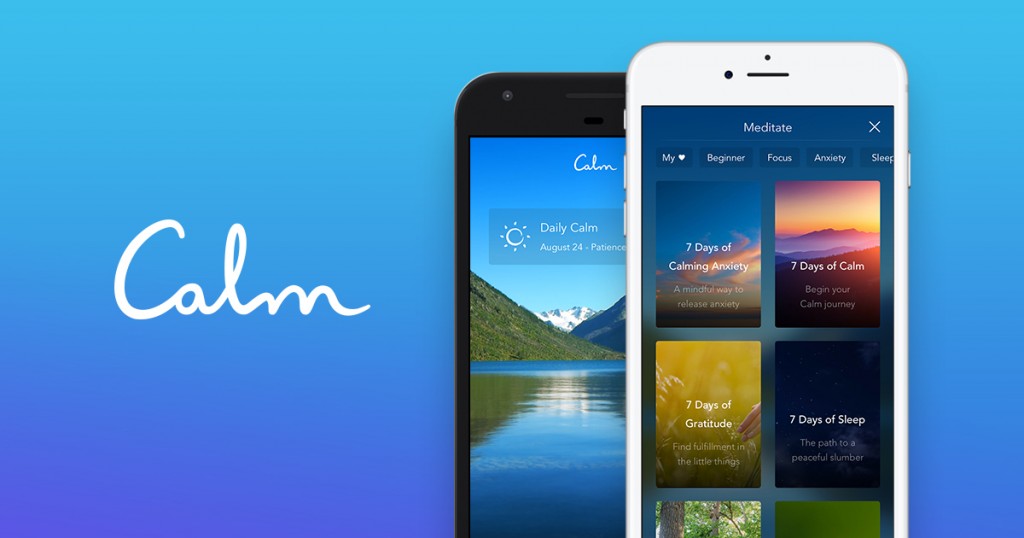
If a better night’s rest is what you’re after, think twice before using a sleep tracker.
An abundance of modern health and wellness technologies promise benefits like improved sleep and relaxation. But research indicates that sleep tracking devices can actually reinforce some users’ sleep-related stress, making peaceful slumber even harder to attain.
Sleep Aids Gain Popularity
Of the myriad personal health and fitness gadgets on the market today, sleep trackers are among the most popular. The global market for sleep aids, including devices, medications, special mattresses and pillows, sleep tests and monitors, is already worth billions, and is projected to grow from $81.2 billion in 2020 to $112.7 billion by 2025. The category includes products like reading lights, noise machines, weighted blankets, and even “smart” mattresses that monitor sleep quality.
Wristbands, watches, rings, and other wearable sleep tracking devices are increasingly common. They analyze features like breathing, heart rate, and movement during sleep. Many devices produce a “sleep score” that is conveyed to the user via a smartphone app.
For some, sleep trackers provide valuable information that leads to healthier sleep patterns. But in other cases, the devices themselves become barriers to better shut-eye.
The patients were so preoccupied with improving their sleep data that their devices actually became obstacles to improved sleep. The patients’ inferred associations between sleep tracker data and perceived fatigue fostered a “perfectionistic quest for the ideal sleep in order to optimize daytime function.”
Not a Luxury
As a nation, we struggle to get enough quality rest. According to the Centers for Disease Control and Prevention (CDC), a third of US adults report usually getting less than the recommended daily amount of sleep.
Sleep disorders can increase a patient’s risk of other health problems. “Not getting enough sleep is linked with many chronic diseases and conditions—such as type 2 diabetes, heart disease, obesity, and depression—that threaten our nation’s health,” the CDC cautions. Inadequate sleep raises the risk of motor vehicle crashes and mistakes at work, resulting in injuries, disabilities, or worse. “Getting enough sleep is not a luxury—it is something people need for good health.”
Orthosomnia
In recent years, a new kind of sleep disorder has begun to emerge: orthosomnia. The term, coined by Dr. Kelly Glazer Baron and colleagues at Rush University Medical School, basically means losing sleep over getting enough sleep.

Baron and her sleep research team describe an increase in patients seeking treatment for self-diagnosed sleep disorders. In a 2017 paper in the Journal of Clinical Sleep Medicine, they document a series of cases involving individuals who sought treatment for insomnia or insufficient sleep duration. The patients believed their symptoms correlated with periods of light or restless sleep, based on data they obtained from sleep tracking devices.
What the researchers found, however, was that the patients were so preoccupied with improving their sleep data that their devices actually became obstacles to improved sleep. The patients’ inferred associations between sleep tracker data and perceived fatigue fostered a “perfectionistic quest for the ideal sleep in order to optimize daytime function.”
Ironically, fixation on the goal of excellent sleep resulted not in better rest, but in heightened stress and, consequently, lost sleep. The findings suggest that tracking devices may augment anxieties about sleep, or fuel a counterproductive sense of “perfectionism” in some patients. (Baron, K et al. J Clin Sleep Med. 2017; 13(2): 351–354).
“Ortho” comes from the Greek root meaning straight or correct, and “somnia” from the Latin for sleep. The authors selected the term because “the perfectionist quest to achieve perfect sleep is similar to the unhealthy preoccupation with healthy eating, termed orthorexia,” they explain
Data Enthusiasts
As health tracking devices continue to gain popularity, their widespread use raises a host of important questions for medical professionals.
The Rush paper cautions that one “challenge for clinicians is balancing educating patients on the validity of these devices with patients’ enthusiasm for objective data.”
While sleep trackers do measure several factors related to rest, they aren’t nearly as sophisticated as true medical sleep studies, which are based on validated sleep assessment techniques such as polysomnography or actigraphy. Real sleep studies monitor patients’ brain waves and analyze sleep cycles, generating data that physicians can use to diagnose disorders like insomnia or sleep apnea. Generally, sleep tracking apps can’t do that.
Multiple validation studies show hat sleep tracking devices are “unable to accurately discriminate stages of sleep and have poor accuracy in detecting wake after sleep onset,” Baron and colleagues report. Yet patients often feel that the data from their trackers aligns more closely with their perceived sense of how well they rested, than the data obtained from a medical sleep study.
Challenges for clinicians
This gulf can be a big challenge for physicians. Despite sleep trackers’ documented shortcomings, patients’ fervent confidence about the quality of their devices can be “difficult to alter.”
“Consumers are enthusiastic about this technology and often think the data are highly consistent with their experience of their sleep,” the Rush team writes.
This enthusiasm can be an impediment to successful treatment of sleep disorders. Patients with strong attachments to their sleep devices may be tough to effectively engage in interventions like Cognitive Behavioral Therapy (CBT), a common technique for treating sleep conditions.
COVID-somnia
New research indicates that Americans’ sleep health took a turn for the worse last year. Findings from one study show that the number of days participants reported difficulty falling asleep, staying asleep, or not feeling rested, all increased in 2020 over 2018 levels. Notably, the decline in sleep health was more pronounced in younger adults than in individuals aged 60 or older (Hisler, G & Twenge, J. 2021. Social Sci & Med. 276: 113849).
Some are referring to the surge in sleep disturbances as “COVID-somnia” (Gupta, R & Pandi-Perumal, S. Sleep Vigil. 2020; 4: 51–53).
As lockdowns disrupted the usual rhythms of daily life, many people also experienced major changes in their physical activity levels, eating habits, use of electronic devices, and sleep habits. Millions of people started using home health technologies like workout apps or personal training programs in lieu of trips to the gym.

Of the 10 most frequently downloaded health and fitness apps in 2020, two of the top four were not workout products––they were sleep and meditation apps. Calm, the number one app, provides programs like guided meditations to help users achieve better quality sleep, lower stress and anxiety, and improve focus. Number four on the list of most-installed programs, Headspace, is another mindfulness and meditation app.
In a year marked by heightened stress and uncertainty, it is no surprise that tools promoting relaxation and restfulness rose in popularity. That said, not everyone suffered from worse sleep during the COVID era.
Paradoxically, pandemic-induced lifestyle changes like fewer early morning commitments, working or schooling from home, and traveling less often gave many people newfound opportunities to improve the length or quality of their sleep. Several factors––including level of caregiving responsibilities, vulnerability to stress, work schedules, and health status––predict the likelihood that the pandemic resulted in improved sleep health (Gao, C & Scullin, M. Sleep Med. 2020; 73: 1-10).
Promoting Good Sleep Hygiene
Given the general uptick in sleep disturbances last year, it is crucial that clinicians talk to their patients about the quality of their sleep. The good news is that with the right interventions, sleep disorders are treatable.
Start by encouraging patients to use reliable, trusted technologies to track sleep traits. The nonprofit HeartMath Institute, for instance, offers a suite of scientifically validated tools and techniques shown to help patients reduce and avoid stress. The HeartMath systems analyze “heart-brain communication” with the goal of balancing users’ emotional wellbeing, improving sleep, increasing focus, and restoring energy.
Health tech users seeking better sleep should be particularly mindful of their screen time. Simply spending time looking at a phone or laptop screen can itself prevent restful sleep, even if the device is used to access health programming. Digital devices emit blue light, which suppresses the body’s natural production of melatonin.
Health tech users seeking better sleep should be particularly mindful of their screen time. Simply spending time looking at a phone or laptop screen can itself prevent restful sleep, even if the device is used to access health programming. Digital devices emit blue light, which suppresses the body’s natural production of melatonin.
Dr. Baron and her team at Rush University warn that individuals who are overly reliant on sleep tracking devices “may also have other problematic technology use patterns.” Working late at night, receiving nighttime smartphone notifications or calls, and watching television on a laptop or phone before bed can all interrupt sleep.
She also noted that, “it is conceivable that patients who are highly anxious about their sleep may be tempted” to log into their sleep applications to check on sleep patterns during the night, though none of the people in her study did so.
“Clinicians should be sure to address poor sleep habits such as phone use during the night that may be exacerbating factors in insomnia and daytime fatigue.”
Some of the simplest strategies for improving sleep hygiene are totally tech-free. Sleep professionals recommend limiting time in bed to a structured 8-hour period, avoiding stimulants like caffeine late in the day, and removing distractions such as phones or televisions from the bedroom. Setting a consistent sleep schedule, following a relaxing pre-bedtime routine, and creating a comfortable sleep environment can also set patients up for a good night’s rest.
END







